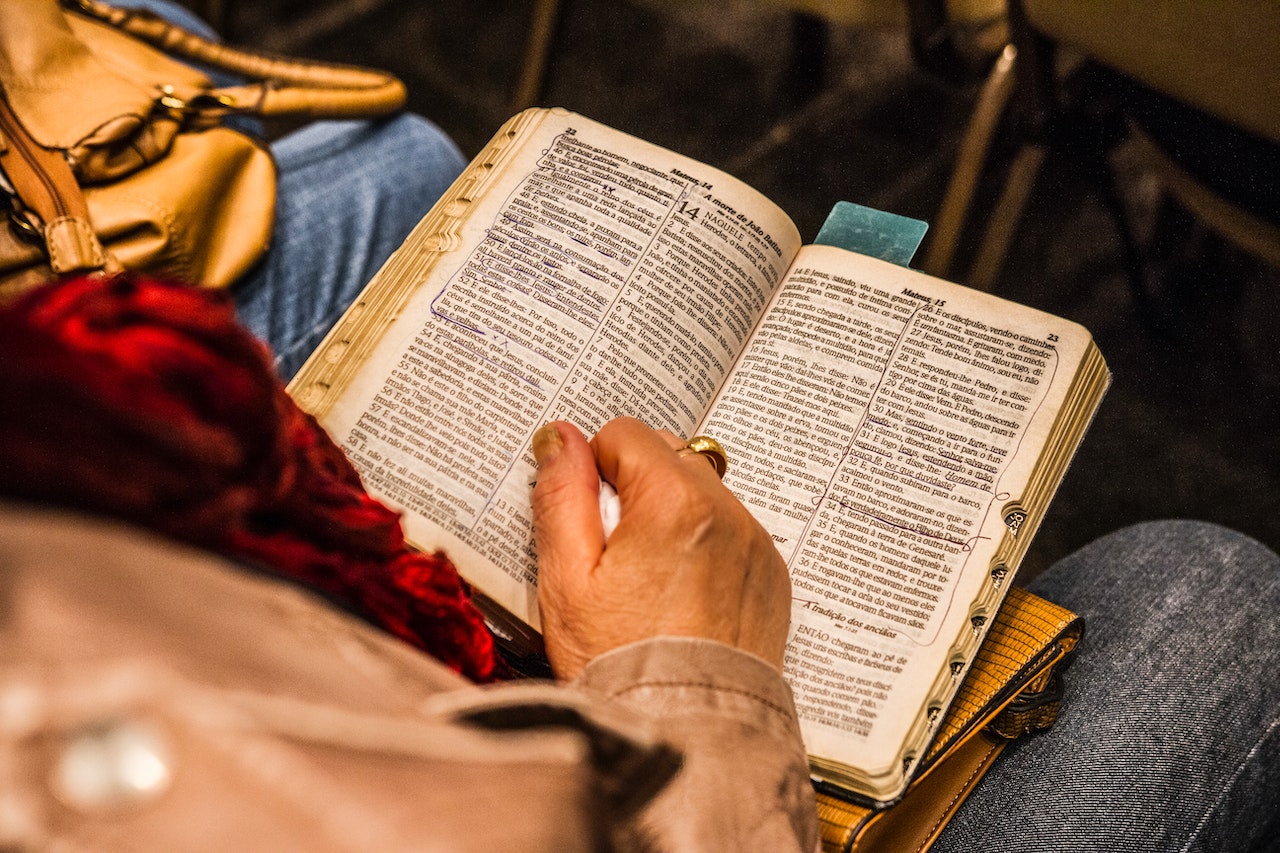In many countries, marriage registration is a legal requirement. However, some Christians may wonder if they can marry without registering their marriage.
Table of Contents
Legal Implications of Unregistered Christian Marriages
Have you ever wondered if Christians can get married without registering their marriage? It’s a common question that many couples may have, especially if they are looking to have a more intimate and personal ceremony. While the idea of not having to deal with the legalities of marriage may sound appealing, there are some important legal implications to consider when it comes to unregistered Christian marriages.
First and foremost, it’s important to understand that marriage is a legal contract between two individuals. In order for a marriage to be legally recognized, it must be registered with the appropriate government authorities. This registration process ensures that the marriage is valid and legally binding, and provides certain legal protections and rights to the couple.
When a marriage is not registered, it may not be considered legally valid. This means that the couple may not have the same legal rights and protections as couples who are legally married. For example, in the event of a divorce or separation, unregistered couples may not have the same rights to property division or spousal support as legally married couples.
Additionally, unregistered marriages may not be recognized by certain institutions or organizations. For example, if a couple wishes to apply for a mortgage or insurance policy together, they may be required to provide proof of their marriage. Without a marriage certificate, they may not be able to access the same benefits or privileges as legally married couples.
It’s also important to consider the implications of not registering a marriage in the event of a spouse’s death. Without a legal marriage certificate, the surviving spouse may not be entitled to inherit the deceased spouse’s assets or property. This can create significant legal and financial challenges for the surviving spouse, especially if there are disputes over the deceased spouse’s estate.
In some cases, unregistered marriages may also have implications for children born within the relationship. Without a legally recognized marriage, the children may not have the same rights to inheritance or support as children born to legally married parents. This can create complex legal issues and challenges for the family, especially in the event of a separation or divorce.
While the idea of having a more intimate and personal ceremony may be appealing, it’s important for couples to consider the legal implications of not registering their marriage. By taking the time to ensure that their marriage is legally recognized, couples can protect their rights and ensure that they have access to the legal protections and benefits that come with marriage.
In conclusion, while Christians may have the option to marry without registering their marriage, it’s important to consider the legal implications of doing so. By ensuring that their marriage is legally recognized, couples can protect their rights and ensure that they have access to the legal protections and benefits that come with marriage. So, before you decide to skip the registration process, take the time to consider the potential legal consequences of an unregistered Christian marriage.
Religious Perspectives on Marriage Registration for Christians
Have you ever wondered if Christians can get married without registering their marriage? It’s a common question that many people have, especially those who are considering tying the knot in a religious ceremony. While marriage registration is a legal requirement in many countries, there are some religious perspectives on the matter that may surprise you.
In Christianity, marriage is considered a sacred union between a man and a woman, and is often seen as a covenant before God. While some Christian denominations may require couples to register their marriage with the government, others believe that a marriage ceremony performed in the presence of God and witnesses is sufficient.
One of the main arguments against marriage registration for Christians is the belief that marriage is a spiritual bond that should not be regulated by the government. Some Christians feel that registering their marriage with the government goes against their religious beliefs and undermines the sanctity of their union.
On the other hand, there are Christians who believe that marriage registration is important for legal and practical reasons. Registering a marriage can provide legal protections and benefits for both spouses, such as inheritance rights, tax benefits, and access to healthcare. In some cases, marriage registration may also be required in order to have a religious ceremony recognized by the government.
Ultimately, the decision to register a marriage is a personal one that each couple must make for themselves. Some couples may choose to have a religious ceremony without registering their marriage, while others may opt to register their marriage for legal and practical reasons.
It’s important to remember that marriage is a deeply personal and spiritual commitment, and each couple should make decisions about their marriage based on their own beliefs and values. Whether or not to register a marriage is a decision that should be made thoughtfully and prayerfully, taking into consideration the couple’s individual circumstances and beliefs.
In conclusion, while marriage registration is a legal requirement in many countries, there are some Christians who believe that it is not necessary for a marriage to be valid in the eyes of God. Ultimately, the decision to register a marriage is a personal one that each couple must make for themselves, taking into consideration their own beliefs and values. Whether or not to register a marriage is a decision that should be made thoughtfully and prayerfully, with the guidance of God and the support of loved ones.
Benefits and Drawbacks of Registering a Christian Marriage

Have you ever wondered if Christians can marry without registering their marriage? It’s a common question that many couples may have, especially if they are considering tying the knot in a religious ceremony. While there are benefits to registering a Christian marriage, there are also drawbacks to consider. Let’s take a closer look at both sides of the issue.
One of the main benefits of registering a Christian marriage is that it provides legal recognition of the union. This can be important for a variety of reasons, such as ensuring that both partners have legal rights and protections in the event of a divorce or separation. Registering a marriage can also make it easier to access certain benefits, such as health insurance or social security benefits.
On the other hand, some couples may choose not to register their marriage for personal or religious reasons. For example, some couples may believe that marriage is a sacred covenant between themselves, their partner, and God, and that registering the marriage with the government is unnecessary. In these cases, the couple may choose to have a religious ceremony without obtaining a marriage license.
While there are benefits to registering a Christian marriage, there are also drawbacks to consider. One potential drawback is the cost associated with obtaining a marriage license and going through the registration process. Depending on where you live, the cost of a marriage license can vary, and some couples may find it to be an unnecessary expense.
Another drawback to registering a Christian marriage is the potential for government involvement in your relationship. Some couples may feel uncomfortable with the idea of the government having a record of their marriage, and may prefer to keep their relationship private and separate from the state.
Ultimately, whether or not to register a Christian marriage is a personal decision that each couple must make for themselves. Some couples may feel that registering their marriage is an important step in solidifying their commitment to each other, while others may feel that it is unnecessary. It’s important to consider your own beliefs and values when making this decision, and to communicate openly with your partner about your feelings on the matter.
In conclusion, there are benefits and drawbacks to registering a Christian marriage. While registering a marriage can provide legal recognition and access to certain benefits, some couples may choose not to register their marriage for personal or religious reasons. Ultimately, the decision of whether or not to register a Christian marriage is a personal one that each couple must make for themselves.
Alternatives to Official Marriage Registration for Christians
Have you ever wondered if Christians can get married without officially registering their marriage? It’s a common question that many couples may have, especially if they are looking for alternatives to the traditional route of getting married at a courthouse or through a religious ceremony. While the answer may vary depending on your location and personal beliefs, there are some alternatives that Christians can consider when it comes to marriage registration.
One option that some couples choose is to have a private ceremony with a pastor or religious leader without officially registering their marriage with the government. This can be a meaningful way to commit to each other in the eyes of God and your community without the legal paperwork that comes with official registration. While this type of marriage may not be recognized by the state, it can still hold spiritual significance for the couple and their loved ones.
Another alternative to official marriage registration for Christians is to have a commitment ceremony. This type of ceremony is similar to a wedding but does not involve legal paperwork or government recognition. It can be a beautiful way to celebrate your love and commitment to each other in front of your family and friends without the constraints of traditional marriage laws. While a commitment ceremony may not have the same legal benefits as a registered marriage, it can still be a meaningful and special event for the couple.
Some couples may also choose to have a common-law marriage, which is a type of marriage that is recognized in some states without the need for a formal ceremony or registration. In a common-law marriage, the couple lives together and presents themselves as married to the community. While the requirements for a common-law marriage vary by state, it can be a valid option for couples who do not want to go through the process of registering their marriage with the government.
Ultimately, the decision of whether or not to register your marriage as a Christian couple is a personal one that should be made based on your beliefs and values. While some couples may choose to have a traditional wedding with legal registration, others may opt for alternative options that better align with their spiritual beliefs. Whatever you decide, it’s important to remember that marriage is a sacred commitment between two people and should be treated with respect and love.
In conclusion, Christians can marry without official registration through alternative options such as private ceremonies, commitment ceremonies, or common-law marriages. These alternatives can provide a meaningful way for couples to commit to each other in the eyes of God and their community without the legal paperwork that comes with traditional marriage registration. Ultimately, the most important thing is to honor your commitment to each other and to celebrate your love in a way that feels authentic and true to your beliefs.
Cultural and Social Factors Influencing Unregistered Christian Marriages
Have you ever wondered if Christians can get married without registering their marriage? It’s a question that many people have asked, and the answer isn’t always straightforward. In many cultures and societies, marriage is seen as a legal contract that must be registered with the government. However, in some Christian communities, there is a belief that marriage is a sacred union that doesn’t necessarily require government intervention.
One of the main reasons why some Christians choose to marry without registration is because they believe that marriage is a covenant between themselves, their partner, and God. They see marriage as a spiritual commitment that doesn’t need to be validated by the state. In these cases, couples may choose to have a religious ceremony or exchange vows in front of their church community without obtaining a marriage license.
Another factor that influences unregistered Christian marriages is the cultural and social norms of the community. In some cultures, marriage is seen as a private affair that doesn’t need to be regulated by the government. Instead, families and communities play a significant role in overseeing and approving marriages. In these cases, couples may choose to have a traditional ceremony that is recognized by their community but not by the state.
There are also practical reasons why some Christians may choose to marry without registration. In some countries, the process of obtaining a marriage license can be complicated and expensive. Couples may choose to forgo the legal requirements and simply live together as a married couple without the official paperwork. This can be especially common in areas where access to government services is limited or where there is a lack of trust in the legal system.
It’s important to note that while unregistered marriages may be valid in the eyes of the church or community, they may not be recognized by the state. This can have legal implications, especially when it comes to issues such as inheritance, property rights, and child custody. Couples who choose to marry without registration should be aware of the potential consequences and seek legal advice if necessary.
In conclusion, the question of whether Christians can marry without registration is a complex one that is influenced by cultural, social, and religious factors. While some Christians may choose to marry without government intervention, it’s important to consider the legal implications of such a decision. Ultimately, the decision to register a marriage is a personal one that should be made with careful consideration and respect for both the spiritual and legal aspects of marriage.
Conclusion
In conclusion, Christians can marry without registration, as long as they follow the laws and regulations of their country regarding marriage. However, it is recommended to register the marriage to ensure legal recognition and protection of rights.
For licensing reasons, we must provide the following notice: This content was created in part with the help of an AI.


